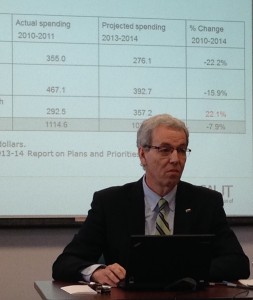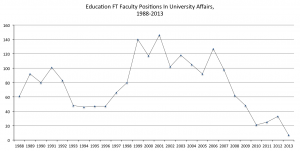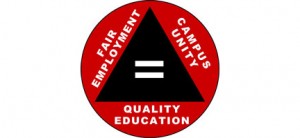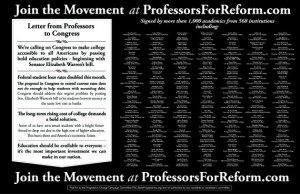Chronicle of Higher Education, June 11, 2014–James L. Turk is retiring from his post as executive director of the Canadian Association of University Teachers, the national union representing almost all of Canada’s faculty and academic staff members, on June 30. In an interview with Karen Birchard, a Canadian correspondent for The Chronicle, he looked back on his 16 years at the helm of the organization. What follows is an edited version of their conversation.
Q. Why are you retiring now?
A. I feel very strongly that organizations need new blood and new leadership. I probably pushed the envelope by staying 16 years. I love what I’m doing and look forward to it every morning, but it’s good for the organization to have someone else do the job.
Q. Did you achieve what you wanted to at CAUT?
A. The organization has grown and moved forward. But there’s always so much more that can be done.
Q. Like what?
A. A lot of union members treat membership like their insurance company—”We pay our dues, and if there’s trouble, there’s the union to support us.” But the reality is, our biggest obligation is to defend and protect those things that are the core of what makes good university and college education possible. There are powerful forces trying to change those things, and we have to engage our members more actively in that struggle.
Q. What issue stands out?
A. One of our biggest problems, like in the United States, has been the casualization of the profession. This means a significant proportion of the people teaching at our universities are exploited, are paid a miserable amount of money, don’t have basic rights to be paid to do scholarly work or to do service, and are often excluded from participation in development of curriculum. We’ve made huge progress in unionizing them and creating the possibility for advances, but a large part of that work is undone.
Q. What’s the future for unionism for academic faculty and staff members in Canada and the United States?
A. In Canada, university and college teachers have the highest degree of unionization of any employee group in the country, and that has been vital in protecting the integrity of our universities and colleges, as well as academic freedom and the quality of education.
The situation is dramatically different in the United States, where the majority of universities don’t even have faculty unions. More than a third of the states have laws that effectively undermine unionization, so faculty in the United States don’t have the tools available to us in Canada.
Q. Is academic freedom in Canada stronger or weaker than when you started?
A. I would say stronger, in part because now almost everybody is unionized. We have such a strong expectation of academic freedom in Canada that any university administration that violates it becomes a pariah.
Q. What are you going to do next?
A. I’ve been offered a position as a distinguished visiting professor at Ryerson University, in Toronto. I’m going to be working toward creating a center for the promotion of freedom of expression. I will also be doing some work with CAUT and with some individual faculty associations and a fair amount of media work around higher education.
Read More: Chronicle of Higher Ed


 Follow
Follow


